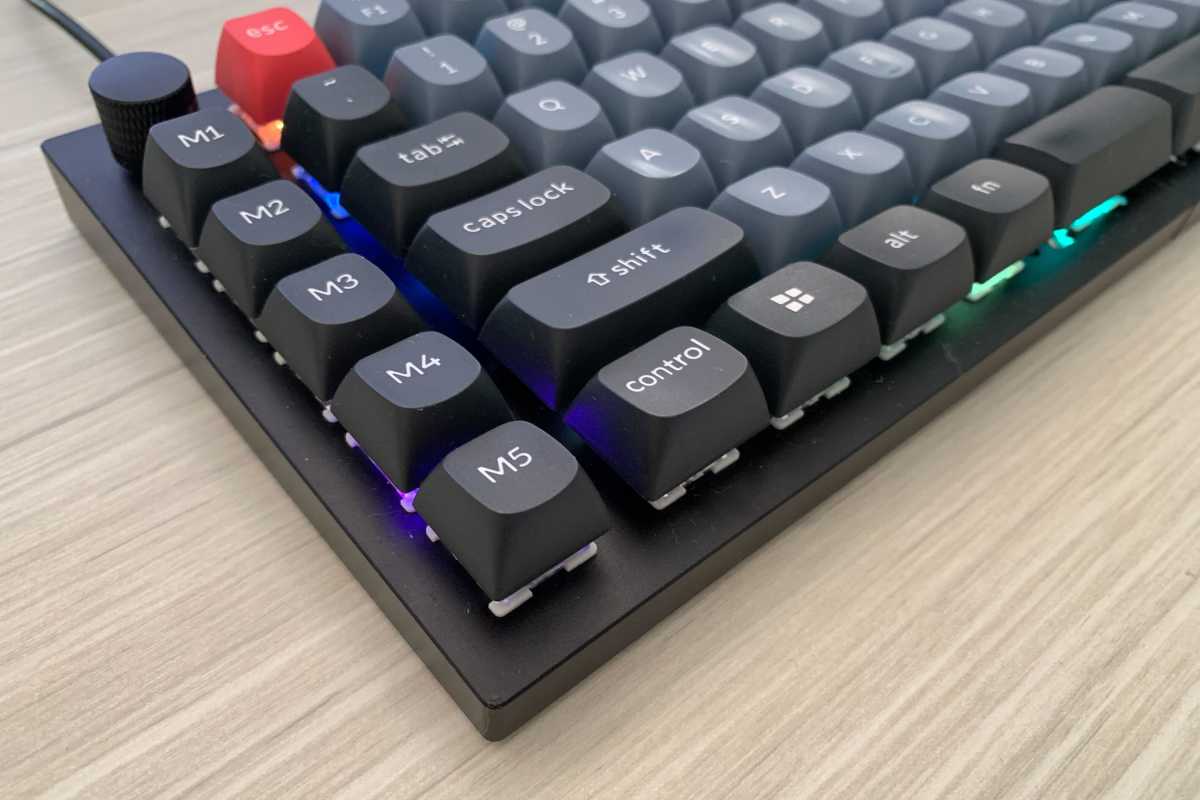Gaming keyboards might seem like they’re for only gamers, especially if you’re not drawn to their rainbow lighting and bold coloring. But underneath their distinctive aesthetic lies a lot of utility—a gaming keyboard can speed up access to your most used commands and programs within Windows. The trick is to get a model with programmable keys.
Looking for a new gaming keyboard? Check out PCWorld’s roundup of the best gaming keyboards available today.
I recently rediscovered this while reviewing the Keychron Q11, an ergonomic mechanical keyboard that has a dedicated column of macro keys. I don’t really game much on PC currently (and when I do, it’s with a controller), so when it came time to assign something to those macro keys, I realized they could help me in my daily tasks.
If you’re not already familiar with macro keys, they allow you to assign commands or an app to a single key. While a keyboard shortcut is fast, a macro key is even faster. Just strike one key and a whole wealth of key presses can be relayed to Windows. Here are some examples of ways you can put a macro key to work:
- Instant mute and unmute in Zoom, Teams, or Google Meet calls
- Insertion of text or symbols you use often (e.g., email signature, em dash, table flip kaomoji)
- Open an often-used program (e.g., Calculator, Photoshop, etc)
- String together multiple commands

Alaina Yee / Foundry
More expensive models (like the Keychron Q11 and those that my colleague Michael Crider reviews regularly) let you program the whole board, but you don’t need to go that luxe. You just need to find one with a set of dedicated macro keys, and they don’t cost that much. Wired boards are as cheap as $30. Fancier wireless models can be had for under $100, with this tenkeyless Redragon K596 (read our review) and this full-sized Logitech G613, both coming in at under $75. You can turn off the RGB lighting or change it to be subtler, too, leaving you with what’s usually just a plain black keyboard—most budget boards don’t get wild with their keycap colors.
There is a small caveat: If you buy a cheap model, you don’t get a lot of say in the kind of switch you get with the keyboard. At that price, they’re soldered on, so what’s offered is what you get—and a good number of budget boards come with red switches, which are more easily activated. While ideal for gaming, some typists can find them to be too sensitive, so you may have to hunt around to find something that you’ll like. (For example, if you’re fine with membrane switches, this Corsair K55 variant may feel more familiar and thus more comfortable when tapping away on it). You can go for a keyboard with hot-swappable switches instead, which opens up a huge range of switch options, but expect to pay for the privilege.
You don’t have to move to a gaming keyboard if you like your current keyboard, of course—you can instead buy a macro deck like the Elgato Stream Deck instead. But the Stream Deck costs at least three times as much as the cheapest gaming keyboard with macro keys. It can also be overkill if you only want a handful of macro keys, and it takes up additional space on a desk. Alternatives exist like creating your own virtual macro deck with Touch Portal’s excellent software, but you have to have your phone or tablet nearby with that app open. I prefer the more streamlined approach of having an extra inch on my keyboard dedicated to macro keys.
As for what I have my macro keys set to? Nothing exciting, which suits me fine. The one at the very bottom of the column (closest to me, so I can jam my finger on it quickly when called on unexpectedly during a virtual meeting) is the keyboard shortcut for mute/unmute in Zoom—I don’t like holding the spacebar. I also have the em dash on speed dial (so to speak) as well as the calculator app. If this particular keyboard didn’t lack an End key, I’d use my remaining two macro keys for the table flip and shrug kaomojis, which I use…uh…a lot. It’s not very innovative or imaginative, but saving time is exciting enough for me. Even if it’s just slivers of it.




